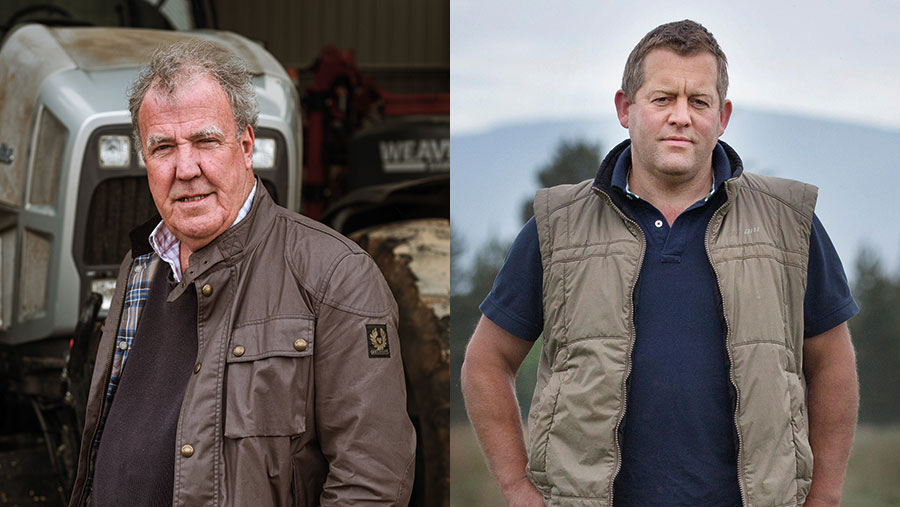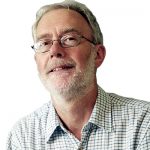Opinion: Clarkson and Rebanks – different journeys converge
 Jeremy Clarkson and James Rebanks © MAG/Colin Miller and Jeff Gilbert/Alamy Stock
Jeremy Clarkson and James Rebanks © MAG/Colin Miller and Jeff Gilbert/Alamy Stock Given my interests, it’s no coincidence that for Christmas I was given the books English Pastoral by James Rebanks and Diddly Squat by Jeremy Clarkson (though I’ll confess I had not heard about Rebanks and I have never watched Clarkson’s TV series).
Cue new year reading about farming in two different worlds by two personalities as unlike as you can imagine.
Rebanks is the reflective, even lyrical, observer of changes from the perspective of more than 600 years of his Cumbrian farming family.
Clarkson is the caustic, jokey diarist writing about a single year trying his hand running his 400ha Oxfordshire farm. As the jacket blurb says, how hard could it be?
See also: Jeremy Clarkson tells FW farming is ‘harder than I thought’
Very hard, as Rebanks confirms and Clarkson discovers, and as any farmer knows.
However, Rebanks’ subtitle – “an inheritance” – suggests ending up with something more after six centuries than Clarkson’s “diddly squat” after a year on the farm.
Their journeys are very different, too.
Rebanks’ journey begins with his younger self leaving Cumbria for Australia with the burden of the expected inheritance of the family business weighing him down.
A return home is the beginning of a difficult process in which his grandfather’s traditional ways contrast with the modernisation his father feels compelled to take on, just to survive.
Clarkson’s journey begins with the breathtaking naivety of taking a picturesque bit of the Cotswolds and believing he can turn a profit from his exposed, stony soils because “12,000 years of farming must be in our DNA”.
He’s doing this in the year of Brexit, the Covid-19 pandemic and the same weather that Rebanks graphically describes devastating Cumbria.
The telescoping of Clarkson’s progress into 12 months and his “have-a-go” approach makes for some wonderful encounters with livestock, machinery and vegetables.
Bottling spring water and opening a farm shop, done on an impulse and dealing with the planners and objectors afterwards. A doer, not a listener, but with help at hand… luckily.
Rebanks is a listener first; to his grandfather, who instilled in him a sense of pride and responsibility for the profession he does in the end take on; to the sounds of nature around him, receding as the curlew retreats to the edges of the land it used to share with farmers.
He listens, too, to those who write and talk about farming’s journey that ended on a treadmill of intensification and diminishing returns.
Becoming “strangers to the fields that feed us”, farmers are part of the problem, Rebanks says. With fewer farmers, and helpers, it is a lonely place.
But Clarkson’s and Rebank’s journeys don’t end in different places.
Both are canny, and insightful; they see the bigger picture, be it the red tape that infuriates Clarkson or the globalisation of food production that dismays Rebanks.
Both are good at finding people who can help.
Beauty doesn’t pay the bills, as Rebanks says, and farmers need to make a living. The regenerative agriculture he espouses has to make economic, not just environmental sense.
And it’s not all about money for Clarkson. Behind the polemic and provocation is the bird watcher, tree planter, beekeeper and wildflower enthusiast.
They both recognise farming is not like anything else you can do for a living. In different ways, they both give us hope. And they’re both worth reading.

